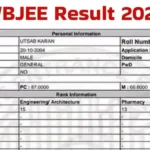Supreme Court Bengaluru Murder
Supreme Court Bengaluru Murder: The Supreme Court has temporarily halted the life sentence of a woman convicted in a 2003 Bengaluru murder case. The court cited “reformative justice” and societal pressures, allowing her time to seek pardon. This unique ruling highlights a deeper consideration of the human elements behind the crime.

Image: Wikipedia
Supreme Court Pauses Life Sentence in Bengaluru Fiance Murder Case
In a significant development, the Supreme Court of India has temporarily suspended the life sentence of a woman convicted in the 2003 murder of her fiancé in Bengaluru. The court, emphasizing “reformative justice,” allowed Shubha Shankar and three co-accused eight weeks to file mercy petitions. This landmark decision came on Monday, July 14, 2025. It underscores the court’s intention to consider rehabilitation alongside punishment.
The Tragic 2003 Bengaluru ‘Ring Road’ Murder
The case dates back to December 3, 2003. B.V. Girish, a 26-year-old software engineer, was brutally murdered. His fiancée, Shubha Shankar, then a 20-year-old law student, conspired in his killing. They had become engaged just days before, on November 30, 2003. Investigations later revealed Shubha loved Arun Varma, her college junior. She allegedly plotted Girish’s murder with Arun and two others, Venkatesh and Dinesh.
On the night of the incident, after dinner, Shubha and Girish stopped at Air View Point. They planned to watch airplanes land. While they were parked, assailants attacked Girish. They fatally struck him on the head with a steel rod. Shubha, with the help of bystanders, took Girish to the hospital. Doctors declared him dead the following morning. Police quickly cracked the case using mobile call detail records, then a relatively new investigative tool. In July 2010, a local court found all four guilty. It sentenced them to life imprisonment. The Karnataka High Court upheld this verdict. Shubha then approached the Supreme Court in 2012, which granted her bail. The other accused also received bail later.
Supreme Court’s Observations on the Case
A bench of Justices M.M. Sundresh and Aravind Kumar presided over the recent hearing. They upheld the convictions but took a unique approach to the sentencing. The court acknowledged the extensive evidence against the accused. However, they also looked at the “deeper, human dimensions” of the tragedy.
The judgment described Shubha as a young woman “muffled by a forced family decision.” She faced immense internal turmoil as family traditions thwarted her ambitions. The court observed that “mental rebellion and wild romanticism” led to the catastrophic outcome. They noted that the “unfortunate event would not have occurred had the family been more sympathetic in understanding the mental predilection and disposition of Shubha.”
The court stated that while they cannot condone her actions, “a mere punishment per se would not constitute a remedy for an act of crime.” They emphasized India’s constitutional encouragement of individual reformation, allowing for a “new lease of life.” They noted the accused, who committed the offense “with adrenaline pumping in their veins,” have now reached middle age. The court also highlighted that two out of the four accused were teenagers at the time.
Read More..- Pakistani Military-Brass Allegedly Orchestrated Pahalgam Attack
Path Towards Pardon and Reformative Justice
The Supreme Court aims to facilitate the accused’s right to seek pardon. It has permitted them to approach the Karnataka Governor. The court suspended their arrest and life sentence for eight weeks. This period allows them to file their petitions before the Governor under Article 161 of the Constitution.
This ruling exemplifies the principle of reformative justice. This theory in criminal law focuses on rehabilitating offenders. It aims to transform them into law-abiding citizens rather than solely imposing punishment. It considers the root causes of criminal behavior and seeks to reintegrate individuals into society. The Supreme Court’s decision reflects a compassionate view, seeking to offer the appellants a chance at rehabilitation, despite the heinous nature of their crime.














